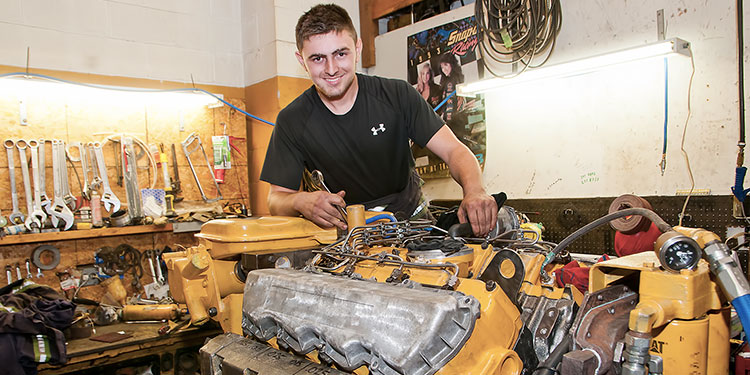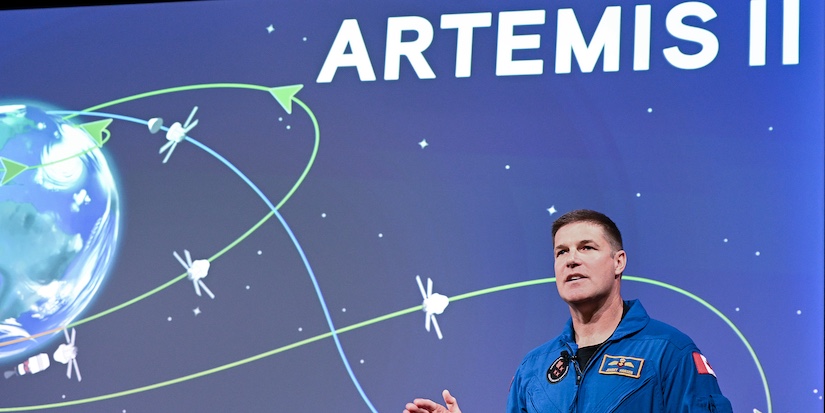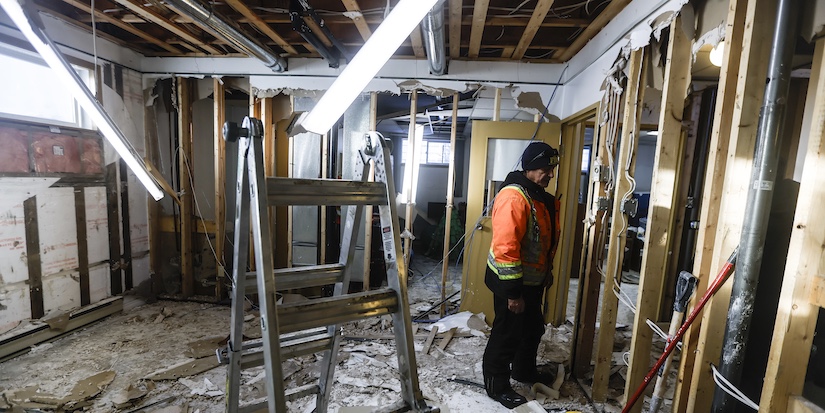Latest News
Transferable skills fuel success
Published 11:47 PDT, Wed September 27, 2017
Last Updated: 2:12 PDT, Wed May 12, 2021
Corben Menta had it all planned out. He was
going to fly jets.
That’s why he spent years in Air Cadets. That’s
why he took Aviation at Steveston-London Secondary.
Then came disappointing news; Menta is
colour-blind. That diagnosis excluded him from a career as a pilot because they
need to be able distinguish coloured lights for night landings.
“It meant I couldn’t have a night rating for
being a pilot,” he says.
He took it in stride then regrouped, choosing
a related field in aviation, jet engine repair, and signed up for the course at
the Aerospace Campus of BCIT in Richmond.
“I picked that course because I did have an
interest in turbine engines but, most of all, it was to get mechanical
experience in general because I knew it would be pretty beneficial. It was only
a one-year course so wouldn’t take up too much of my time and, compared to the
other courses there, it was pretty inexpensive.”
He said it was rigorous program.
Menta’s long term plan was to work on turbine
engines either in the Lower Mainland, elsewhere in Canada or maybe overseas.
“I wasn’t entirely sure, I just wanted to use
the knowledge I gained form BCIT somewhere,” he says. “Ideally I wanted to get
a job in Richmond, but I tried to look at other places to give me more of a
chance.”
With lots of places to choose from, Menta
tried them all, places like MTU Maintenance, Airborne Engines, Heli-One, and
Vector Aerospace.
No one was hiring. So he took a job at The
Brick. For a year, Menta delivered furniture and installed electronics for the
firm.
Living near Steveston, walking down the back
alley, past the huge marine diesels under repair inside the open garage doors
of Steveston Marine Services, it never crossed Menta’s mind that one day he’d
be working there.
“To be honest, I never really gave marine
diesels a lot of thought. Because I was in cadets, I had my sights set on the
aviation industry and never looked into any other industries until I had
trouble finding a job within aviation,” Menta says.
One day, opportunity presented itself so he
applied for the marine engine job he has now.
Did his time at BCIT help him get the work?
“I think it did make a difference. It showed
them I had experience doing mechanical work.”
A variety of experiences in a person’s
background, including hobbies and volunteer work, can all add up to valuable
skills in the work place.
Menta took the skills he learned at the
Aerospace Campus, added those from automotive class at Steveston-London
secondary and the skills from his hobby—keeping his elderly car running—to
parlay that into a satisfying job.
He also says practical skills from BCIT
transfer to his work on marine equipment.
“Things like the proper way to torque a bolt
or the things you have to avoid when taking apart an engine.”
He says the variety of learning helped him
too.
“BCIT gave me a lot of experience, such as
wiring.”
What about others who can’t find jobs in the
field they trained for?
“Well, I would say to look for other similar
fields but I would tell them to keep their options open. Chances are you aren’t
going to stick with one job the rest of your life,” advises Menta.




























